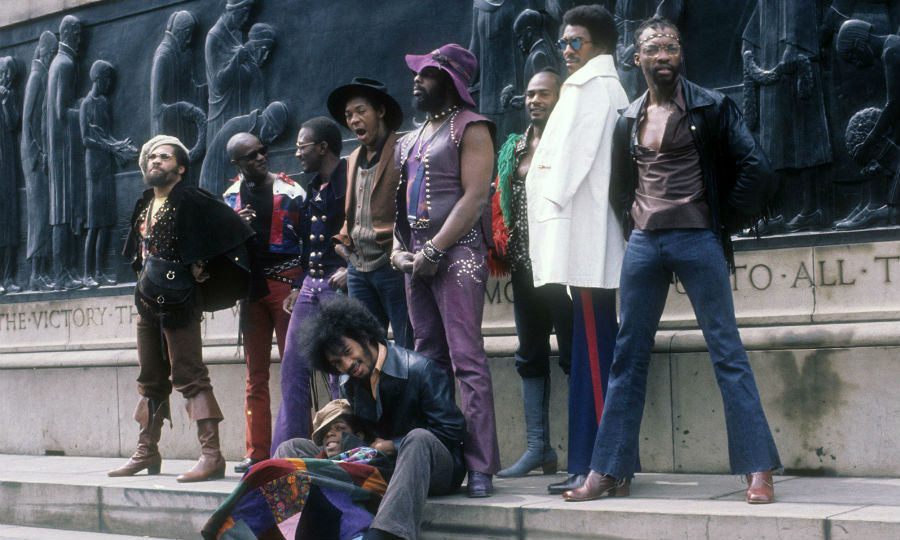Funkadelic is one of the greatest rock bands of all time, period. They can go toe-to-toe with any classic rock deity and come out unscathed. Their sheer irreverence towards the cultural norm, musical recklessness, and downright explosiveness led to some of the best funk of the last half-century, and it all began with their self-titled debut in 1970.
As a group, they had it all: great players, great singers, a great look, a great concept, big hits, brilliant albums, lots of drugs, freaky sex, and just about everything else necessary for a culturally defining rock band.
Over the years, more than 170 people have played in Funkadelic and it’s alter-ego band, Parliament, commonly referred to as P-Funk. This doesn’t even include the 20 or more spin-off bands that have erupted from the core. But across the 30 incredible and ever-changing albums in the P-Funk catalogue, Funkadelic – released 50 years ago today –masterfully blended rock, Motown, and funk for a stunning debut that lit the wick on the funk saga.
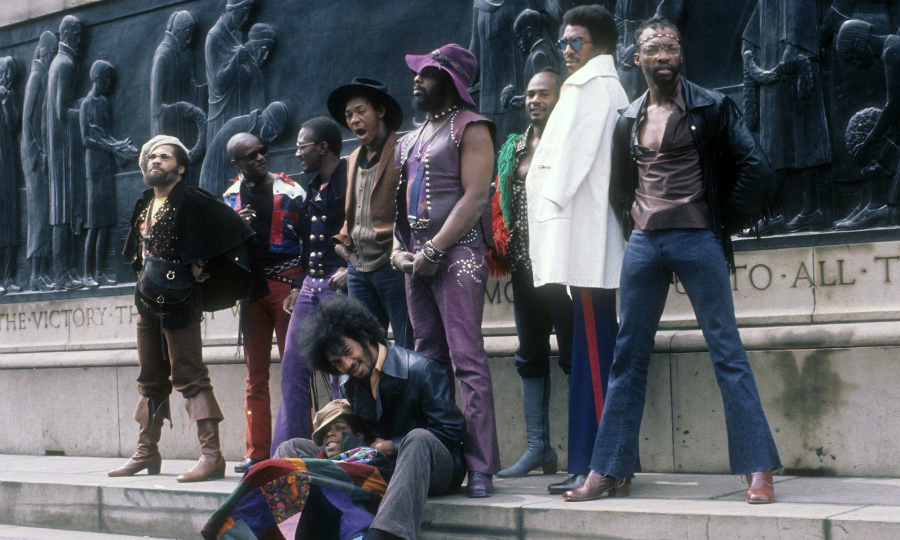
The aspiring Motown singer, George Clinton, rattled conformity with an uncharacteristic assault of psych-rock and tired morals on Funkadelic.
George Clinton was still finding his feet in 1970. After growing up in Plainfield, New Jersey, Clinton gravitated towards the ebullient harmonies of doo-wop. He formed his own band, The Parliaments, inspired by Frankie Lymon and The Teenagers.
In the early ’60s, they travelled to Detroit to audition for the Motown label. In The Parliaments’ early years Clinton decided this was what he had to do, dutifully synchronise dance steps, polish their harmonies, and don matching suits. Motown passed on the group but hired Clinton as an on-and-off staff songwriter, producer, and arranger. He was a humble guy satisfied with second-hand glory.
In 1967, The Parliaments released their first big hit, (I Wanna) Testify in 1967, while Clinton was arranging and producing a score of singles on various independent Detroit soul labels. Yet the success embittered the band. The members didn’t feel that they fit in with their squeaky clean peers.
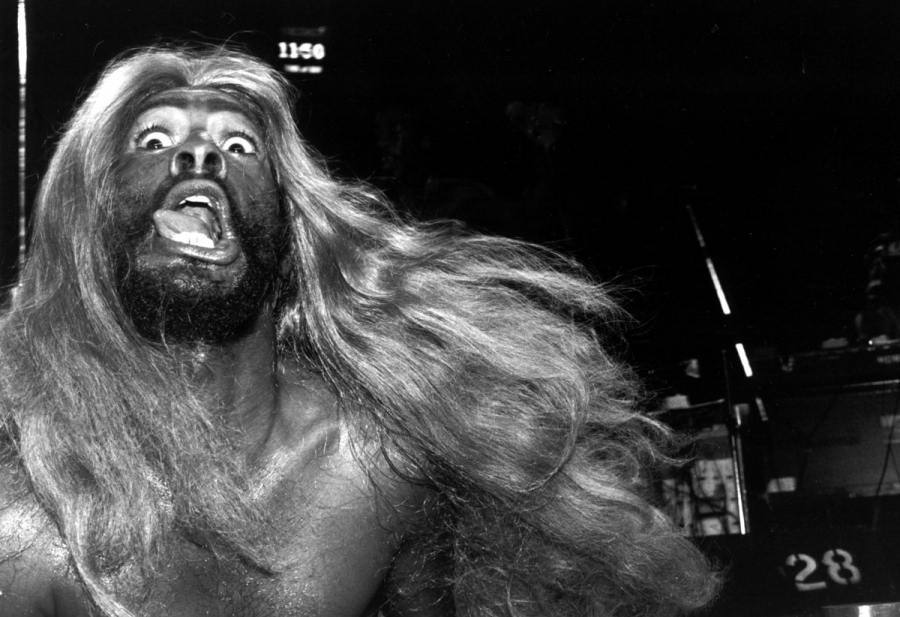
They were attracted to the vision of Motown, the essence of breezy, compact perfection. But they were also infatuated with the hammering, bludgeoning impact of rock, especially the way Jimi Hendrix made the screeching feedback of his amplifier sing. So they threw off their ties and grew their hair out. Clinton realised that you could play gospel and soul music at the sludgy pace of rock, and he rebranded The Parliaments – who were stuck in a messy contract dispute – as Funkadelic.
One day, while watching cartoons, Clinton came up with the idea that it was far more interesting for a band to masquerade as characters and mascots than to be themselves.
People get old, looks fade, but a good character can live forever. Though the split personality of Parliament and Funkadelic evolved from contractual complications, it exposed the importance of personae when crafting a band’s identity. Costumes or no, every great band has a character or a story.
When Clinton got into disputes with his label Revilot over money and rights, he decided to begin recording his backup band instead, using the original Parliament singers, Clinton, Ray Davis, Clarence “Fuzzy” Haskins, Calvin Simon, and Grady Thomas, as guests. Guitarists Eddie Hazel and Tawl Ross, bassist Billy Nelson, drummer Tiki Fulwood, and later, master keyboardist Bernie Worrell, formed the band that would terraform this fairly traditional soul group into the intense live act that rocked the Detroit scene and wowed Westbound Records head Armen Boladian.
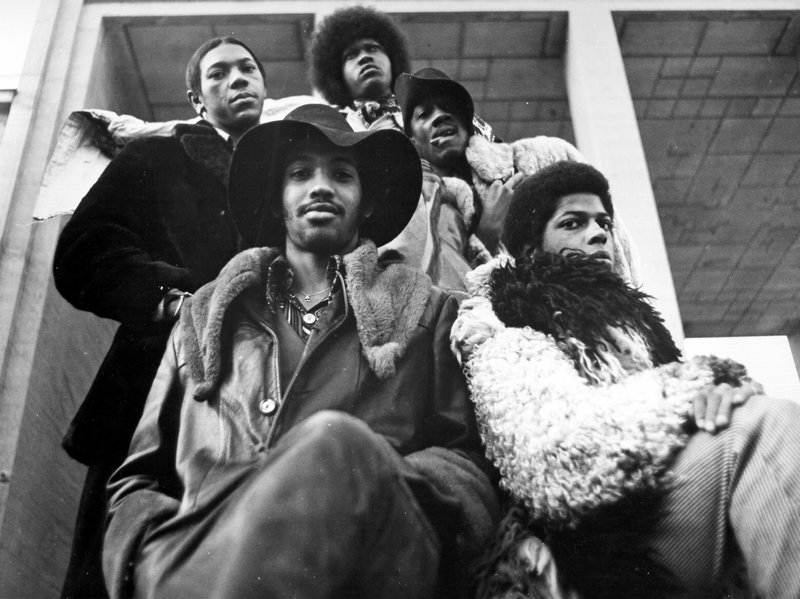
He signed them, and from the outset, their music lacerated genres and demolished money troubles. Funkadelic dropped like a bomb all over rock and soul. Forget MC5, forget James Brown, forget Jimi Hendrix, nobody had heard anything like this. To many, it sounded like a big, sludgy mess.
Robert Christgau described it as, “Someone from Carolina who encountered eternity on LSD and vowed to contain it in a groove” while a writer from Rolling Stone ended their review with a succinct, “who needs this shit?” Despite its divisive critical response the record sold, peaking at #16 on the Soul Charts, planting the seed for a cult worship that would inflate in the latter half of the decade, making the P-Funk mothership the most successful soul act on the planet.
Mommy, What’s a Funkadelic? cracks open the vault of the album with the sound of Clinton’s lubricated mouth and a whopping opening line: ‘If you will suck my soul, I will lick your funky emotions.’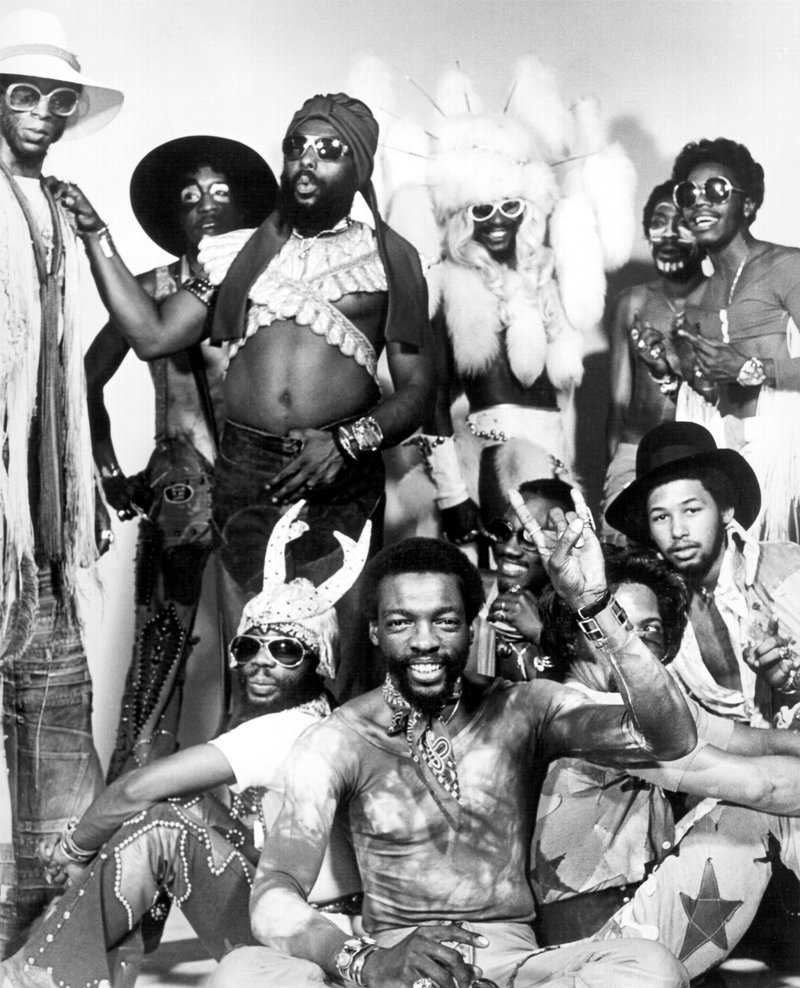
Then the beat whacks hard, Hazel’s guitar line falls in step and it becomes instantly apparent this a band without peers. Tracks like Mummy and Good Old Music hit with a brute force and ferocity to match anything Zep ever released. Following a loner’s vagrancy through on Keep Runnin’ Mississipi and the mythology of the South on Music For My Mother, Clinton had begun spinning the web of his grand world of heroes and villains, making it a critical and indispensable Funkadelic record.
On Funkadelic, we see the groundwork laid for Free Your Mind.. and Your Ass Will Follow, and the iconic Maggot Brain. Granted this was followed by the first of many of the band’s reformations due to drug habits, money accusations, and Tawl Ross ingesting a sickly combination of LSD and speed, and barely surviving with severe brain damage. However, Funkadelic remains an iconic and pivotal moment for one of funk’s most extra-terrestrial ambassadors.
